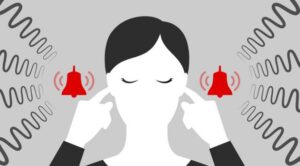These days, everything you could ever want can be delivered directly to your door: clothes, books, even fresh groceries! We live in a world where purchasing items online is easy and is quickly becoming our standard way of shopping. So, can this means also be applied to medical equipment? Say… to a hearing aid? Consider these things before dumping hearing aids into the same bucket as other (simpler) goods.
The first step in purchasing a hearing aid is a proper diagnostic hearing test. This should be completed by a licensed audiologist using specialized, calibrated equipment to get the most accurate information. Test results can tell you the type, degree, and nature of your hearing loss. Current online hearing screenings cannot determine the type and cause of your hearing loss. Origins of hearing impairment can be as simple as too much ear wax in the canal to a brain tumor. Some of these causes are medically treatable. It is important to be medically and audiologically evaluated prior to moving forward with hearing aids. An audiogram completed by a licensed professional is much more than a hearing screening.
If the diagnostic hearing test determines that you are a hearing aid candidate, it’s time to choose the best hearing aid for you. A hearing aid is an intricate medical device designed to treat hearing loss and is much more than a simple amplifier. There are many options to consider, including style, anatomy, technology level, manufacturer, power potential, cost, etc. A licensed professional can help you navigate the wide range of choices to determine the best option to treat your individual hearing loss and meet your specific hearing needs. Purchasing with the input of an audiologist helps you be sure you purchase a device that will actually benefit you!
Once you have worked face-to-face with your audiologist to make the best hearing aid choice, you will receive programming, counseling, education, verification testing, and other support you need to be sure you have the best hearing aid experience possible. Different hearing aids require specific computer software to be programmed. Purchasing directly from your audiologist ensures that they have access to this software and are proficient in using it. Some online hearing aid sales outlets require you to ship the hearing aid to them for adjustments, leaving you without your device for quite some time.
The science and art of hearing aid fitting involves much more than just the device itself. Hearing is what connects us to those we love, and should be approached with great care and consideration with the help of those qualified to help. Be sure your hearing aid experience is the best it can be, Call to schedule an appointment. We look forward to helping you hear better!



